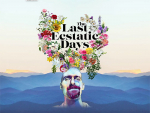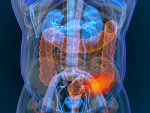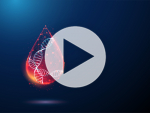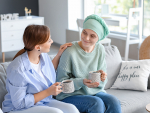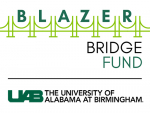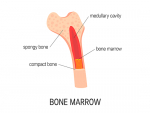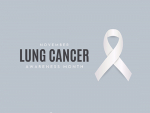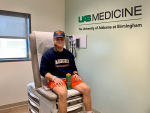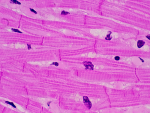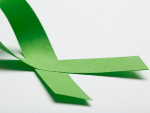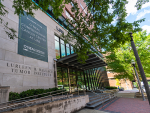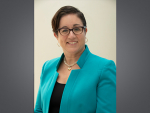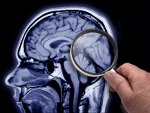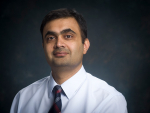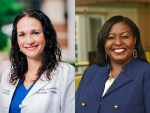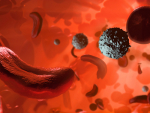Displaying items by tag: division of hematology and oncology
This transformative gift from Ted W. Love, M.D., and Joyce Y. Love will improve patient care for those with sickle cell disease on a local and international level.
Tagged under
One UAB expert says the roles of screenings, warning signs and a healthy lifestyle are all keys to cancer prevention.
Tagged under
See the powerful documentary “The Last Ecstatic Days” at UAB's ALys Stephens Center and hear about the cultural and spiritual considerations of dying from UAB caregivers and Aditi Sethi, M.D., with The Center for Conscious Living & Dying, with guest artist Manjari Sharma.
Tagged under
Mortgage lending discrimination in the 1930s is still geographically associated with inequities in colon cancer care today. Colon cancer often can be treated successfully if detected early.
Tagged under
Sickle cell disease is the most common and clinically significant inherited blood disorder across the nation, and now there is an FDA-approved gene therapy to help those living with SCD.
One UAB experts says the roles of screenings, warning signs and a healthy lifestyle are all keys to cancer prevention.
Tagged under
After a loved one receives a breast cancer diagnosis or surgery, it is important for caregivers and support partners to know how they can best help the patient during the difficult time.
Tagged under
The O’Neal Comprehensive Cancer Center at UAB is recruiting Alabama women who have never had breast cancer for the study, to test a personalized approach to breast cancer screening.
Tagged under
The Blazer Bridge Fund is intended to identify and assist in the development of promising ideas, discoveries, innovations and/or technologies from UAB faculty and staff that have commercial potential.
Tagged under
- release
- harbert institute for innovation and entrepreneurship
- school of education
- school of engineering
- school of medicine
- department of otolaryngology
- department of anesthesiology and perioperative medicine
- department of microbiology
- department of medicine
- division of hematology and oncology
- division of pulmonary allergy and critical care medicine
- division of gerontology geriatrics and palliative care
An overabundance of mast cells, which are important components of the immune system and are produced in the bone marrow, can lead to a variety of health issues.
Tagged under
New screening guidelines and improvements in diagnostics and treatment have improved outcomes in lung cancer.
Tagged under
When Cameron Monistere was diagnosed with cancer right before his senior year of college and final season as an Auburn University cheerleader, he acted fast. With the help of UAB experts, Monistere is now cancer-free and using his story to raise awareness about men’s health.
Tagged under
Direct reprogramming is a potential therapy for heart attack patients. In vitro, TBX20 improved contractility and mitochondrial function of reprogrammed heart muscle cells.
Tagged under
UAB’s CAR T-cell therapy cured stage 4 lymphoma with the help of the patient’s resilience and the doctor’s timely diagnosis and treatment.
Tagged under
O’Neal Invests funds UAB investigators initiating new cancer-related projects to do key preliminary work to enable competitive extramural applications.
Tagged under
The NIH grant will advance efforts to reduce the gap between research and care of sickle cell disease.
Tagged under
Results published in the Journal of Alzheimer’s Disease show patients with one cancer diagnosis were less likely to develop dementia and had an overall slower cognitive decline than patients with no history of cancer.
Tagged under
The American Cancer Society Board of Directors recognized UAB and its faculty’s commitment to further cancer research and promote health behaviors that can lessen cancer occurrence.
Tagged under
Although unproven, this novel sickle cell therapy serves as a potential cure. More measures need to be taken to determine long-term function and organ improvement.


